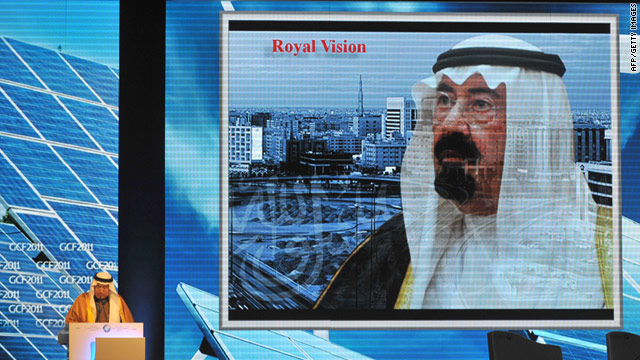Truth Vibrations
New member

Saudi Arabia will be burning most of its oil production domestically in less than 20 years, if current consumption patterns persist, a senior official has warned.
In response, the authorities plan to cut reliance on fossil fuel and develop an alternative energy mix, including atomic and solar sources, as rising local demand could dramatically curtail the kingdom's ability to export oil.
The world's largest oil exporter will need 8m barrels a day by 2028, roughly equivalent to its current production, merely to meet domestic energy needs, Hashim Yamani, president of the King Abdullah Atomic and Renewable Energy City, said on the sidelines of a conference on Sunday. The kingdom currently burns a total of 3.2m/b a day, he said.
"Oil exports and economic growth will be constrained if there is no mix of alternative energy," Yamani said. "We won't be able to leverage prices of oil to build our institutions."
Demand for electricity in the desert country is rising at an annual rate of 8 percent and is expected to triple to 121,000 megawatts by 2032, the government has said. In the 2011 budget, the kingdom channeled SR500m ($133m) to renewable energy.
Yamani said he expected to produce solar energy in commercial quantities "sooner" than atomic power. The latter will take from 8-to-10 years, he said. The kingdom, he said, is consulting with several countries on its nuclear plans and will probably use a mix of US, French, British, Korean and Japanese experience.
"We will not just buy or import institutions and sell energy," said Yamani, a former commerce and trade minister. "We have to develop industries and research related to alternative energy."
Saudi Arabia sits on a quarter of the world's oil reserves, but with no rivers or lakes the desert kingdom is facing a challenge in keeping pace with rising energy demand for power and desalinated water for industrial and home use. Heavy subsidies also encourage waste.
Although the market price of oil averaged almost $70 a barrel last year, the government sells oil for domestic use at $5 a barrel, according to the ministry of water and electricity.
Since the kingdom announced plans to build a renewable energy city last April, Western businessmen have been beating a path to Saudi Arabia, hoping to win lucrative deals.
Pierre Lellouche, French secretary of foreign trade, is currently visiting Riyadh, while Francisco Sanchez, U.S. undersecretary of commerce for international trade, led a delegation of energy and infrastructure companies last month.
On Sunday, Anne Lauvergeon, chief executive of Areva, the French nuclear reactor contractor, told reporters that her company will sign a partnership agreement with Saudi Arabia's Binladin Group for nuclear and solar energy cooperation.
